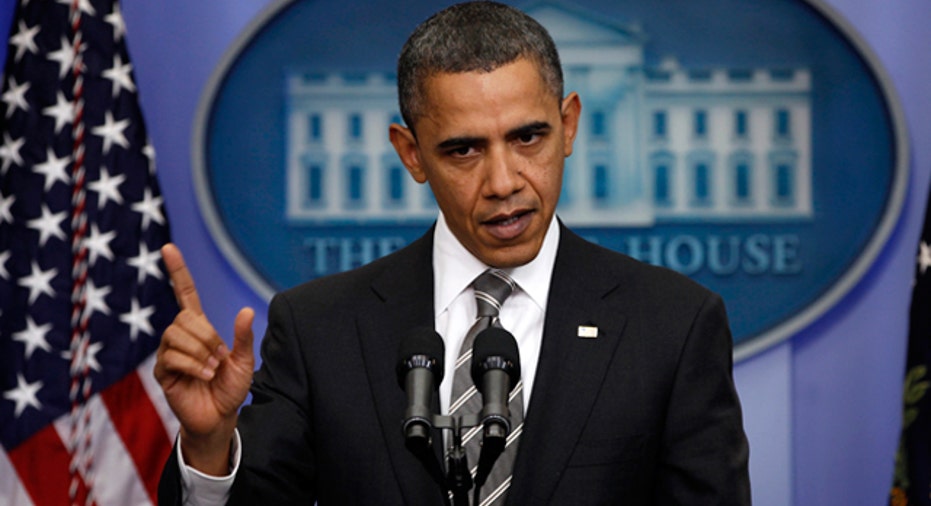Senate OKs $858B Tax-Cut Plan

WASHINGTON – A deal that President Barack Obama struck with Republicans to extend expiring tax cuts for nearly every working American and spur job growth sailed through the Senate on Wednesday.
The Senate passed the legislation in a 81 to 19 vote. The drama now moves to the House of Representatives, where many of Obama's fellow Democrats strongly oppose the measure as favoring the wealthy and are still angry with him for cutting the deal with Republicans without them.
The House will start debate on the tax deal on Thursday, a senior Democratic aide said. Most of the 255 House Democrats may oppose the package, but it is expected to be approved with overwhelming support among the chamber's 179 Republicans.
House Democrats are becoming more resigned to passage of the $858 billion package, which is expected to boost economic growth next year but add to the budget deficit.
"At the end of the day I think we are going to have to pass a bill," said liberal Representative Henry Waxman.
The plan extends for two years all Bush-era individual tax rates, prevents a spike in taxes on capital gains and dividends and renews long-term jobless insurance, while providing new tax relief for students, working families and businesses.
Senate Republicans and Democrats backed it in a rare show of bipartisan support in Congress.
Obama, whose party lost ground to the Republicans in November's midterm elections, tried to make up with the business community at a meeting with some 20 top CEOs on Wednesday.
He was expected to ask them to invest and hire more to help boost economic growth.
Many economists predict the tax package could add up to 1 percentage point to economic expansion next year, due particularly to a one-year cut in the payroll tax and removal of uncertainty about taxes in general.
The measure passed by the Senate leaves out renewal of a popular bond program expiring this month, Build America Bonds, which funds infrastructure projects, favored by Democrats, cities and investors. It leaves intact an ethanol tax credit, thwarting efforts by some lawmakers to weaken it.
But deficit hawks warn that the tax bill deepens the nearly $14 trillion federal debt.
Worries about the bill's potential impact on the federal deficit prompted a two-day sell-off of U.S. Treasury bonds last week. On Wednesday treasuries prices rose after recent price declines lured buyers.
OBAMA IN FINAL PUSH
Obama urged lawmakers to approve the tax bill.
"I am absolutely convinced that this tax cut plan, while not perfect, will help grow our economy and create jobs in the private sector," the president said before the Senate vote.
Particularly irksome to Democrats is a provision raising the exemption threshold for the estate tax from the 2009 policy of $3.5 million to $5 million, and cutting the tax rate from 45 percent to 35 percent.
"It's hard to believe they think it's wise to give a windfall to heirs such as Paris Hilton," Democratic Representative Chris Van Hollen, an assistant to House Speaker Nancy Pelosi, wrote in the Washington Post.
Democrats will likely try to change the tax bill with an amendment on the estate tax, though it is unclear if that could pass.
Still, MF Global analyst Chris Krueger said that such a vote would be symbolic. Another vote on altering the payroll tax cut in the Senate bill, which many believe is a back-door to starving the Social Security system of funds, is also likely to fail, he said.
"Neither will derail the bill's inevitability as they are shy of the 217 votes required," he said in a research note.
Representative Earl Pomeroy, the Democrat sponsor of a steeper estate tax proposal, told Reuters it was "unclear" if such a vote would pass.
He said Democrats will try because "some things are worth fighting for." He then noted: "I will say this ... people want to get home and, you know sometimes, heading to the gate is a pretty powerful impetus to pass packages."
About 30 conservative Democrats known as "Blue Dog Democrats" wrote to Pelosi this week urging the bill's passage.
Obama and most of his fellow Democrats had pushed renewal of the tax cuts enacted under former President George W. Bush only on household income of up to $250,000.
But after Democrats lost control of the House and saw their margins shrink in the Senate in the midterm elections, Obama decided to strike a deal with Republicans.



















